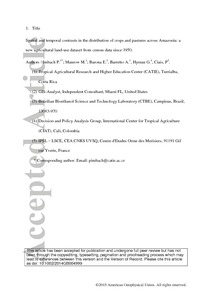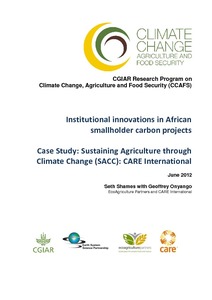Soil property changes over a 120-yr chronosequence from forest to agriculture in western Kenya
Much of the native forest in the highlands of western Kenya has been converted to agricultural land in order to feed the growing population, and more land is being cleared. In tropical Africa, this land use change results in progressive soil degradation, as the period of cultivation increases. Both rates and variation in infiltration, soil carbon concentration and other soil parameters are influenced by management within agricultural systems, but they have rarely been well documented in East Africa.



